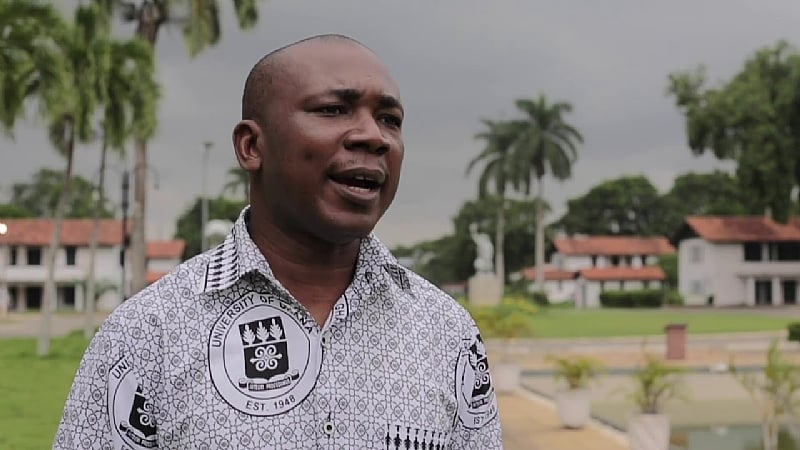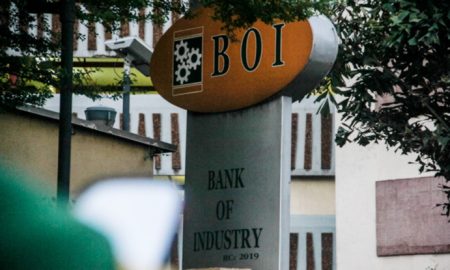The recent surge in the value of the Ghanaian cedi, often hailed as a sign of economic recovery, has been met with skepticism by economist and finance professor Godfred Bokpin. He argues that the appreciation is artificial, driven by undisclosed interventions by the Bank of Ghana rather than genuine market forces or improved economic fundamentals. Professor Bokpin points to the central bank’s quiet management of the exchange rate, keeping it within a predetermined band without transparently communicating this strategy to the public. While acknowledging the occasional necessity of central bank intervention in currency markets, he emphasizes the critical importance of accompanying such actions with clear and open communication to maintain market confidence and avoid disrupting businesses. This lack of transparency, he argues, creates uncertainty and volatility, ultimately hindering sustainable economic growth.
Professor Bokpin’s critique centers on the potential negative consequences of unannounced and unexplained currency fluctuations. He highlights the detrimental impact on businesses, particularly import and export-oriented enterprises, which struggle to plan and operate effectively amidst unpredictable exchange rate shifts. Artificial strengthening of the cedi, divorced from real economic progress, can create a false sense of stability and lead to complacency in addressing underlying structural issues. He warns that such short-term gains are unsustainable and often reverse quickly, potentially leading to even greater instability in the long run. True and lasting economic stability, he argues, requires a foundation of robust structural reforms and improvements in productivity.
The core of Professor Bokpin’s argument rests on the principle of transparency and accountability in central banking. While recognizing the Bank of Ghana’s mandate to manage the currency market and maintain stability, he stresses that this must be done in an open and communicative manner. Secret interventions, even if well-intentioned, erode trust in the central bank and the overall economic system. This lack of transparency fuels speculation, creates uncertainty, and ultimately undermines the very stability the central bank seeks to achieve. Open communication, on the other hand, allows businesses to adjust their strategies, fosters informed decision-making, and contributes to a more stable and predictable economic environment.
Professor Bokpin advocates for a more holistic approach to economic management, emphasizing the need for structural reforms alongside monetary interventions. He argues that true and lasting economic transformation requires a focus on long-term macroeconomic stability, underpinned by improvements in key areas such as infrastructure development, reliable power supply, access to affordable credit, and the creation of decent job opportunities. These structural changes, he believes, are essential for boosting productivity, attracting investment, and driving sustainable economic growth. Simply manipulating the exchange rate without addressing these fundamental issues is akin to treating the symptoms rather than the disease, offering only temporary relief while the underlying problems persist.
Furthermore, Professor Bokpin highlights the crucial role of communication in building confidence in the economy. He argues that transparency from the central bank is not merely a matter of good governance, but a vital ingredient for fostering trust and stability. When the central bank operates in secrecy, it creates an environment of suspicion and uncertainty, which can deter investment and hinder economic activity. By openly communicating its policies and interventions, the central bank can build credibility, manage expectations, and create a more predictable and stable economic environment. This transparency, he contends, is essential for attracting both domestic and foreign investment, which are key drivers of economic growth.
In conclusion, Professor Bokpin’s critique of the recent cedi appreciation serves as a cautionary tale against prioritizing short-term gains over long-term sustainable growth. He argues that manipulating the exchange rate without addressing underlying structural weaknesses and without transparent communication is a recipe for instability. He calls for a more holistic approach to economic management, one that prioritizes structural reforms, transparency, and open communication. This, he believes, is the only path to achieving genuine and sustained economic transformation for Ghana.














